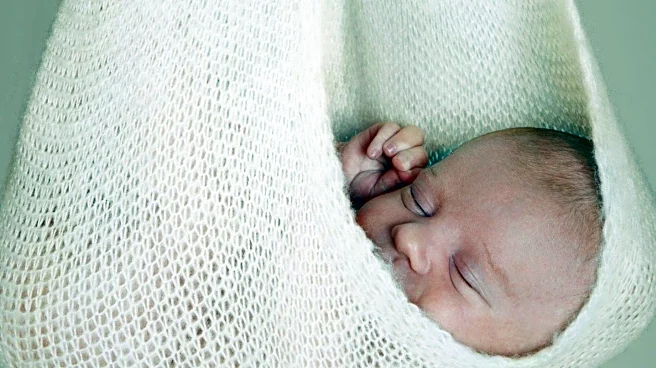What is the story about?
What's Happening?
October is recognized as Sudden Infant Death Syndrome (SIDS) Awareness Month, prompting experts to emphasize safe sleep practices for infants. Consumer Reports has highlighted several key recommendations to ensure infant safety during sleep. Parents are advised against bed-sharing, as the American Academy of Pediatrics warns it can increase the risk of SIDS. Instead, placing a crib or bassinet in the parents' room is recommended, which can reduce SIDS risk by up to 50%. Additionally, Consumer Reports stresses the importance of using non-weighted swaddles and avoiding blankets, pillows, and toys in the crib. Nursing pillows, while useful for feeding, should never be used for sleep due to associated risks. Inclined sleepers have been banned since 2022 due to links to infant deaths, reinforcing the need for a flat, firm sleep surface. Consumer Reports also found that not all bassinets are truly flat, citing the Halo BassiNest Flex portable bassinet as an example. Parents are encouraged to move sleeping infants from bouncers or car seats to a crib or bassinet.
Why It's Important?
The guidance provided by Consumer Reports is crucial for reducing the risk of SIDS, a leading cause of infant mortality. By following these recommendations, parents can create a safer sleep environment for their babies, potentially saving lives. The emphasis on avoiding bed-sharing and using appropriate sleep products aligns with pediatric guidelines, offering a practical approach to infant care. The information also highlights the importance of product safety, as not all marketed sleep products meet safety standards. This awareness can drive consumer demand for safer products and influence manufacturers to prioritize safety in design. The broader impact includes potential policy changes and increased public awareness, contributing to a decrease in sleep-related infant deaths.
What's Next?
As awareness grows, parents and caregivers may increasingly adopt recommended practices, leading to a decline in SIDS cases. Consumer Reports and other safety organizations may continue to test and report on infant sleep products, influencing market trends and regulatory standards. Manufacturers might respond by improving product designs to meet safety expectations, potentially leading to new innovations in infant sleep solutions. Public health campaigns could further educate parents on safe sleep practices, reinforcing the importance of following expert guidelines. Additionally, ongoing research into SIDS may provide new insights, shaping future recommendations and policies.
Beyond the Headlines
The focus on safe infant sleep practices underscores the ethical responsibility of manufacturers to ensure product safety. It also highlights the role of consumer advocacy groups in protecting public health. The issue raises questions about regulatory oversight and the effectiveness of current safety standards. Long-term, increased awareness and adherence to safe sleep practices could lead to cultural shifts in parenting norms, prioritizing infant safety over convenience. The dialogue around SIDS and infant sleep safety may also inspire further research into the causes and prevention of SIDS, potentially leading to breakthroughs in understanding this complex issue.

















